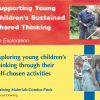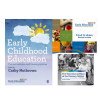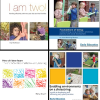Since the introduction of the EYFS framework in 2008 there has been a huge emphasis upon encouraging parents to become engaged in their children’s learning. Research has recognised that parents are children’s first and most enduring educators and that improving the home learning environment is an important role of the practitioner.
In 2004 Kathy Sylva and Iram Siraj-Blatchford embarked upon the EPPE research and in their findings, they highlighted the importance of the home-learning environment.
An environment where parents:
So taking parents out on visits will allow practitioners to support parents improve their interactions with their children as practitioners will be able to model speaking and listening and the introduction of new vocabulary, provide parents with simple tasks and games to complete during the visits, and reiterate the importance of taking children into the local and wider community.
Further international research supporting the need for parental engagement has found the following:
The new Early Years Inspection framework (2019:19) reiterates the importance of parental engagement and what inspectors will be looking for during an inspection visit.
Wherever possible, the inspector must find out the views of parents during the inspection, including those of any parents who ask to speak to them. This will contribute to judgements about how well the provision works in partnership with parents to support children’s learning and development, and the promotion of their well-being.






Early Education
2 Victoria Square
St Albans
AL1 3TF
T: 01727 884925
E: office@early-education.org.uk